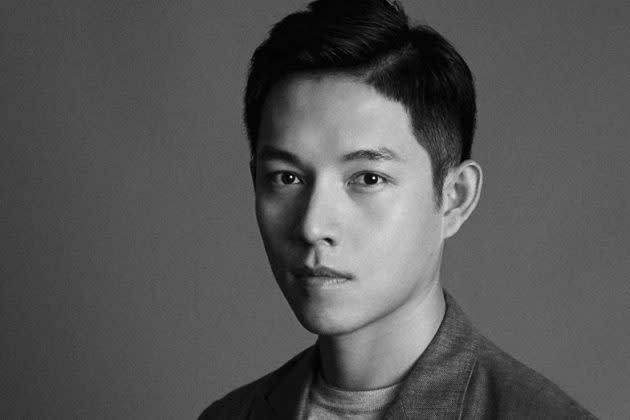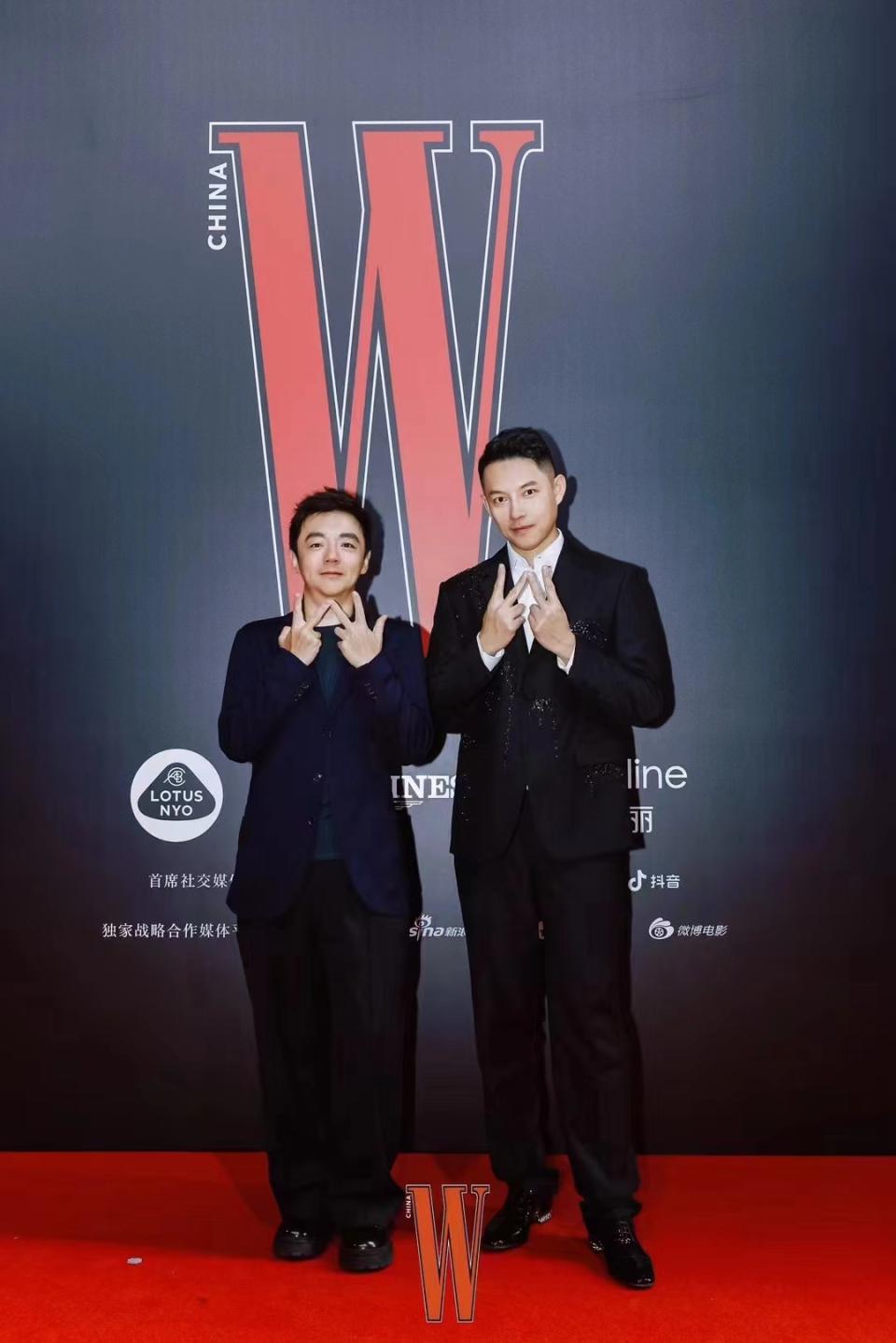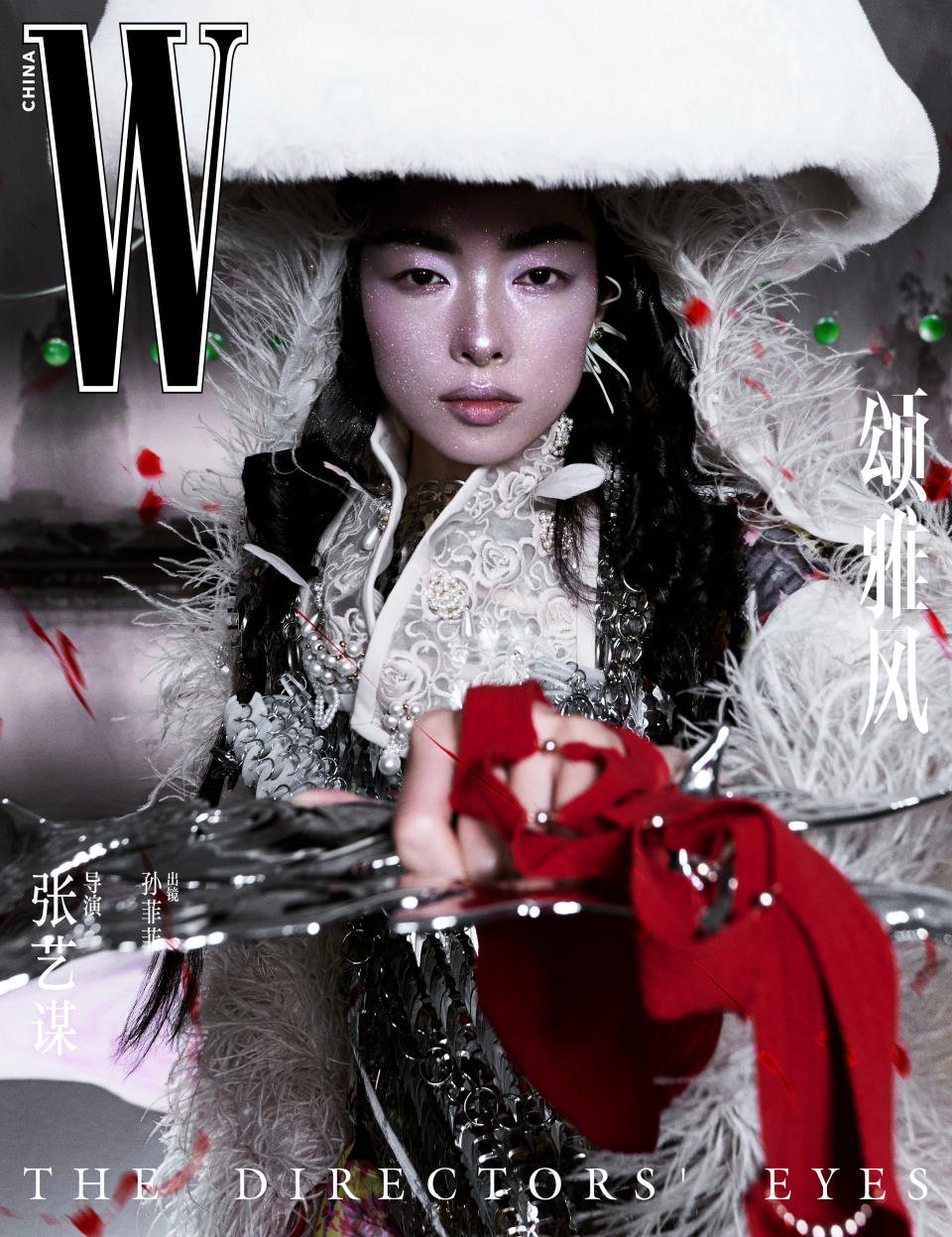Media People: Alex Sun on How to Run Legacy Media in Today’s China

For Alex Sun, chief executive officer of MC Style Media Co. Ltd. and editor in chief of Marie Claire China, a fractured media landscape became his opportunity.
In 2017, when he joined the newly formed media company, which was backed by Chinese apparel giant Heilan Group and independent investors, fashion glossies were in an uncomfortable place: most relied heavily on buzzy celebrities to boost print sales and save dwindling advertising revenue; others found ways to reinvent themselves with clickbait content.
More from WWD
K11 Appears to Be Revamping Guangzhou Mall With Gucci, Chanel Shoe Boutiques
Report: Chinese Luxury Market to See 'Solid Double-digit Rebound'
A social media darling himself — he had launched a popular travel lifestyle WeChat account during the first wave of the social media boom circa 2013 — Sun decided to stay put in legacy media, where he had all the manpower he needed to push out powerful imagery that would capture the zeitgeist.
“It comes down to doing the hard work and pushing for exclusive content, content that our peers are unwilling to put the effort and money into doing, or simply have no resources to produce,” Sun said.
Many of the starry covers, featuring Angelababy and Shu Qi, were brokered by Marie Claire’s fashion director Mix Wei, whom Sun did not see eye to eye with in the beginning.
“We absolutely did not click at first,” Sun said candidly.
“It was the winter of 2017 when we met for the first time. We met at a restaurant near his home, he didn’t even take his coat off and didn’t eat anything; he was on the defense [and] was ready to leave at any second. I eventually gained his trust by showing the same commitment to content,” said Sun, who iterated their vision at the first W Annual Gala earlier this month.
W China, launched more than a year ago, quickly won a reputation for landing the biggest stars, such as Isabel Huppert, Marion Cotillard and Gong Li, on its cover, and producing cover stories photographed by esteemed film directors such as Zhang Yimou and Hirokazu Koreeda.
At the W Annual Gala, the publication’s biggest event to date, Huppert, Koreeda, Kris Van Assche, Yang Mi, andthe cast of the Wang Kar Wei-directed “Blossoms Shanghai,” were seen mingling at what some industry insiders have described as China’s version of the Met Ball.

The event garnered more than 6 billion views on key Chinese social media platforms. During the event, red carpet livestream and related-content generated more than 150 trending topics, or “hot searches,” on Weibo and Xiaohongshu.
Yet behind the scenes, the launch of W was another litmus test for Sun and Wei’s relationship. “We still fight over content,” said Sun, who said it reflects the traditional separation of church and state that has been quietly dismissed at many big-name fashion publications in China.
“We agreed that we wanted to set a new editorial standard; the question was how far we dared to go,” Sun said.
“We wanted to dedicate the whole of the ‘Director’s Eyes’ issue to film, and that meant film-related from cover to cover, so the back cover advertising space was reserved for Saint Laurent because they had just done a campaign shot by Pedro Almodóvar,” Sun added. “Small details like that, which people don’t usually notice, we worked hard on negotiating terms.”

The editorial freedom that Marie Claire China and W China enjoy is partially due to a business model that includes traditional advertising, commercial real estate management, exhibitions and an events production agency.
MC House, a three-story, 32,200-square-foot event space at the highly sought after Chengdu Taikoo Li retail complex, brought in around 10 percent of group revenue after launching more than two years ago. A 600-year-old ancient temple near Beijing’s Forbidden City is about to be turned into a commercial event space, managed by Sun’s team.
“Our goal is to land at another top-notch Chinese mall in 2024,” Sun said. “We have the space, we have the property, we want to help connect brands with real estate partners. This is a key strategy of our company.”
MC Style Media joins the likes of Xuxuhuasheng in its foray into the real estate market. The owner of T Magazine and WSJ magazine’s Chinese edition, Xuxuhuasheng, is known for its links to the real estate project Aranya, which counts several middle-class-friendly resort towns across China.
But you can always bet on Sun’s MC Style Media to make the “more difficult choice,” said Sun, which means landing a new storefront at one of the main retail arteries in Beijing and Shanghai.
“It’s about doing something that no one else can do, for the simple reason that we won’t be copied easily,” Sun said.
Here, Sun talks to WWD about what he learned after working in print for more than 20 years, legacy fashion media’s place in China’s quickly evolving market, what luxury brands really want from Chinese fashion media and the company’s plans to get into real estate and brand investment.
WWD: At the W Annual Gala, you said that you and Mix Wei had set out to do something hard to pull off. What was the most challenging aspect of the event?
Alex Sun: We wanted to present in a nice and classy way what W China stands for — it stands at the top of the pyramid, so to speak, it stands for high fashion, culture and art. We were not going to give out awards like so many Chinese media events do, that made it harder to invite celebrities, to be honest. We wanted to focus on high fashion, so we turned the red carpet into a runway for spring 2024 collections, almost all 50 celebrities became our models of the “show,” presenting the latest trends. We wanted to strike a balance between exclusivity and popularity. The guests had to feel comfortable, but we also want the public to be engaged, that’s why we had influencers Gogoboi and Fashionmodels doing the runway interviews, which [were] also livestreamed.
WWD: What are some of the content strategies that have worked so far at MC Style Media?
A.S.: It comes down to doing the hard work and pushing for exclusive content, content that our peers are unwilling to put the effort and money into doing, or simply have no resources to produce.
WWD: Your role at MC Style Media is quite unique – you’re the editor in chief of Marie Claire China, but also group CEO; how do you balance these sometimes two rivaling roles?
A.S.: I was initially just editor in chief but, a few months after I joined, I had to step up to the role of CEO when Wang Feng left for Trends Group. I did have some experience working on the commercial side during my time at Condé Nast, so I did realize that a good manager at a company can’t be a numbers guy only. They have to prioritize content, which sounds like a no brainer, but a lot of Chinese media companies aren’t like that. It means when your bottom line is in conflict with your profit goals, you have to do the hard thing and say that we have to sacrifice profit for content. This is what I learned in my 20 years as an editor, which is a sense of respect and admiration for content, and the people behind it. The same goes for our real estate content. We can do less exhibitions to save up on production fees, but that doesn’t make sense for the audience, who want newness all the time.
WWD: What are some of the examples of challenges you had to face to balance the bottom line and content?
A.S.: I can say for certain that W China is one of the few magazines in China that maintains editorial freedom for cover shoots. We are glad to see that brands are shifting their mindsets as well, it’s not just about showing the largest diamond or bag on the cover anymore — brands such as Cartier and Gucci are shifting to a content-first mindset, and we are a part of the change.
WWD: What are some of the opportunities you saw in commercial real estate?
A.S.: We realized that the commercial real estate business in China has gotten so “involuted,” to use a buzzword, which basically means that the lack of diversity is hurting returns. The problem is two-fold – there’s too much sameness in their brand lineup, and there’s a need for cultural-related content, such as exhibitions in the commercial mix. We realized that malls are just like our magazine, it needs to constantly evolve and produce all kinds of content, the kind of content that small digital media platforms don’t have the manpower and capability to handle. So almost three years ago, we started out with the MC Cinema idea, and then the MC House pop-up, both were in Shanghai, then we landed on a space at Chengdu Taikoo Li, which is a huge exhibition and event space that spans over 3,000 square meters.
The real estate business is made up of two parts. The first one is the agency model. We have a team that can tailor-make an exhibition for clients — we did so for Longines early last year. The second is a media model. We have our own MC House IP that is currently hosting a AI fashion exhibition that’s touring in Shenzhen and Suzhou right now.
We are working to land in more locations next year. In fact, we have two landmark historical locations in the works right now, both in Beijing. We operate the space, we don’t own it, but being able to have your space at the heart of Beijing is akin to having a billboard ad in Times Square — it’s hard to come by. We might use one of the courtyards to test out the brick-and-mortar IP for W China, but it’s still early stages, it’s something that’s still in the works.
WWD: What do you have in store for the future of MC Style Media?
A.S.: Marie Clarie is a female magazine, W is actually unisex, so we might work on having a purely male media brand in the future. Maybe we would do it in the form of M China, which is something that W Korea has done already, but we don’t know yet, everything is still in discussion.
We will be working on real estate of course. We could even get into brand investment — I’ve been consulting for Florasis for a while now. Being in the industry for so many years, you see what mistakes that brands made along the way. This is an important know-how for Chinese brands moving forward.
Best of WWD


